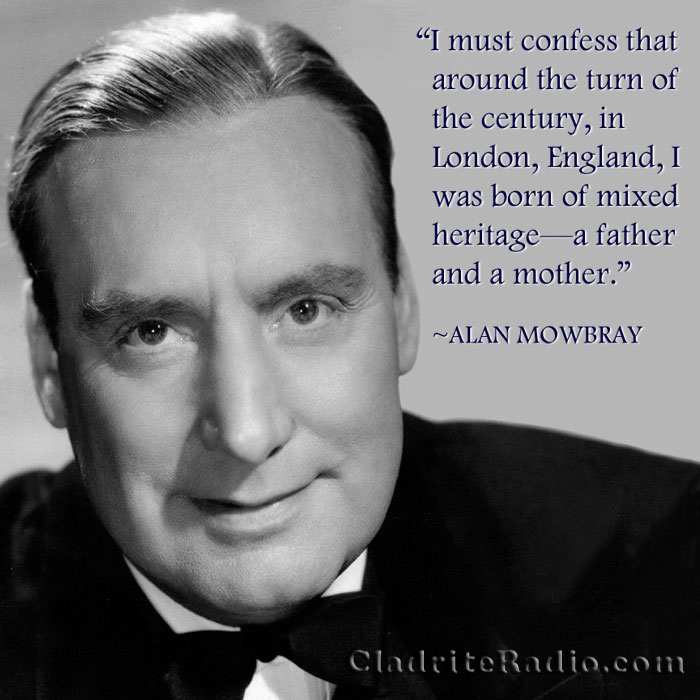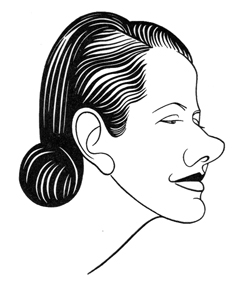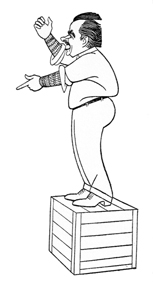Here are 10 things you should know about Alan Mowbray, born 124 years ago today. The prolific character actor appeared in more than 140 films and 40 TV series over his 39-year career.
Tag: Theatre Guild
Happy 112th Birthday, Sterling Holloway!
Character actor Sterling Holloway was born 112 years ago today in Cedartown, Georgia. Here are 10 SH Did-You-Knows:
- Holloway was the first of two sons born to grocer (and Cedartown mayor for one year when Sterling Jr. was seven years old) Sterling P. Holloway, Sr. and his wife, Rebecca.
- Holloway graduated from Georgia Military Academy in 1920 and though only 15, he immediately left the South for New York City to attend the American Academy of Dramatic Arts (Spencer Tracy was a classmate and friend).
- In his late teens, Holloway joined a touring company of The Shepherd of the Hills, performing in a series of one-nighters out west. Afterwards, he returned to NYC, where he performed small roles in Theatre Guild productions. He also was cast in the Rodgers and Hart review The Garrick Gaieties, in which he introduced the popular standard Manhattan.
- In 1926, Holloway moved to Hollywood to pursue a career in pictures, and he would go on to appear in 100 of them. His bushy red hair and prominent features made him a natural for comedies, and he got his start in silent pictures, appearing in three shorts and one feature (Casey at the Bat [1927]).
- In 1932, after four years without a film role (a director had reportedly told him he was “too repulsive” for silent pictures), Holloway began to work in talkies, where his high-pitched, chalky voice served him well, and he kept very busy indeed. From 1932-35, he averaged 10 pictures (some of them short subjects) a year.
- Over the course of his 50-year, Holloway appeared in (or did voice work for) more than 100 features and shorts, and made nearly as many television appearances.
- In addition to his picture and television work, Holloway worked frequently on radio, a medium to which his unique and memorable voice was well-suited. Among the shows to which Holloway lent his talents were The Railroad Hour, The United States Steel Hour, Suspense, Lux Radio Theater and Fibber McGee and Molly.
- Holloway was one of the first actors to make the jump to television, appearing in 1949 on the anthology series Your Show Time, which featured half-hour adaptaions of literary short stories from the likes of Sir Arthur Conan Doyle, Henry James and Robert Louis Stevenson. It was the first American dramatic series to be shot on film and the first series to win an Emmy award.
- Holloway frequently did voice work for animated features, including Dumbo (1941), Bambi (1942), Alice in Wonderland (1951), The Jungle Book (1967), The Aristocats (1970) and perhaps most famously, he provided the voice of Winnie the Pooh in Disney’s popular series of Pooh featurettes.
- College Street, where the Holloway family resided in Cedartown, is now called Sterling Holloway Place and there’s a plaque at the site of his boyhood home.
Happy birthday, Sterling Holloway, wherever you may be!

Happy 120th Birthday, Alan Mowbray!
Character actor Alan Mowbray was born Ernest Allen in London, England, 120 years ago today. Here are 10 Did-You-Knows about the veddy, veddy British Mowbray:
- After serving in the British Army during World War I, Mowbray was awarded the Military Medal and the French Croix de Guerre for bravery.
- After beginning his acting career in touring productions in the English provinces and later appearing in London’s West End, Mowbray moved to New York City. Once there, his money quickly ran out and with nowhere to stay, he lived for a time in Central Park.
- Before long, Mowbray was hired to tour with the Theatre Guild. His Broadway debut was in a 1926 play called Sport of Kings.
- In 1929, Dinner Is Served, an original comedy that Mowbray wrote, directed and starred in, opened on Broadway at the Cort Theatre. It closed after just four performances. In December of that year, Mowbray opened in The Amorous Antic. After that, he would not again appear on Broadway until 1963, when he was cast in Enter Laughing.
- His stiff-upper-lip manner and posh accent were Mowbray’s ticket to Hollywood, where, with the advent of talkies, theatrical actors who spoke well were in demand. He made his motion picture debut in 1931 opposite Frank Fay, Laura La Plante and Joan Blondell in God’s Gift to Women. He played a butler.
- He played George Washington in three different pictures: Alexander Hamilton (1931), Where Do We Go From Here? (1945), and in an uncredited role, The Phantom President (1932).
- Mowbray was a founding member of the Screen Actors Guild.
- Over a thirty-year career in movies, he appeared in more than 130 feature-length motion pictures. He also was very active on television, where he amassed more than 50 credits in nearly twenty years of work.
- Mowbray became the father-in-law of fellow character actor Douglas Dumbrille, who, at the age of 69, married Mowbray’s 28-year-old daughter (ick!).
- He appeared in movies opposite a trio of actors portraying Sherlock Holmes: Clive Brook in Sherlock Holmes (1932), Reginald Owen in A Study in Scarlet (1933) and Basil Rathbone in Terror by Night (1946).
Happy birthday, Alan Mowbray, wherever you may be!

Times Square Tintypes: Lynn Fontanne
In this chapter from his 1932 book, Times Square Tintypes, Broadway columnist Sidney Skolsky profiles Lynn Fontanne, Broadway actress and half of the storied theatrical team Lunt and Fontanne.
TELL ME, PRETTY MAIDEN
LYNN FONTANNE. She’s just a bird in a “Guilded” cage.
 Was born in London. Her name was Lily Louise Fontanne. Changed the Lily Louise to Lynn because it sounded better.
Was born in London. Her name was Lily Louise Fontanne. Changed the Lily Louise to Lynn because it sounded better.Every morning for breakfast she has honey and rolls.
She has a wide smile, a throaty laugh and a robust sense of humor.
Lives in a triplex apartment in East Thirty-sixth Street. The pride of the apartment is a fireplace with an aluminum background. The telephone operator there has a list of the people she will speak to.
A woman, above everything else, she believes, should be fashionable.
During the World War she worked in London as an emergency chauffeur.
She met Alfred Lunt, her husband, during a rehearsal of Clarence. Entering to speak his lines to her, he tripped and fell at her feet. It could be said that he fell for her. Later he suggested that they rehearse in the open air. He took her riding in an open carriage through the park. He gave their scripts to the driver to read while he proposed to her.
Dislikes short dresses and never wore them when they were the style. Wears a blue smock in her dressing room or when idling around the house.
She can foot pedal an Ampico piano longer and better than anyone in this state.
Avoids going to parties. Always giving the same excuse: “I’m too tired.” An actress, she insists, should keep away from her public. She is fond of dancing but seldom does.
After the opening performance of Strange Interlude she slept for fifteen hours.
Her husband’s pet name for her is “Rich Lynnie” because she is always saving her money.
Doesn’t like tinned food and people who rub their hands together. Hates to wear stockings but does. Like to wear jewelry but doesn’t. Hates to write letters and seldom does.
When traveling she brightens up her hotel room with chintz curtains and window flowers which she buys at Woolworth’s.
Her great ambition in life is to be a writer of critical essays.
Changes her perfume weekly. Claims a change of perfume is a change of attitude.
Two years ago, knowing that she was to be operated on for appendicitis, she played through an entire performance against doctor’s orders. Her substitute wasn’t ready. And she didn’t want that show to miss a performance.
Other people call her husband by his nickname, “Bill.” She always calls him Alfred.
She visited her home town, London, last summer for the first time in ten years. She went into a glove shop. The clerk greeted her with: “Oh, how do you do. So glad that you’re back. You’ve been acting out in the colonies, haven’t you?”
Her favorite dish is broiled scallops.
Times Square Tintypes: Richard Bennett
In this chapter from his 1932 book, Times Square Tintypes, Broadway columnist Sidney Skolsky profiles stage actor Richard Bennett.
! ! ! * * * @ @ @ ! ! ! * * * *
SOME day someone will write another Royal Family. It will be a tale of the mad, mad Bennetts. For that author, here’s some data about the head of the clan: RICHARD BENNETT.
Has two favorite dishes. One is plain lamb chops. The other is a bowl of wilted lettuce.
Has three daughters. Joan, Constance and Barbara. All began their careers by performing in the movies.
When he rehearsed in Jarnegan he wore only a pink nightgown.
Drinks a quart of Apollinaris water every day on rising. Gets the water free by mentioning it in the play he happens to be in.
He calls the box office from his dressing room before every performance to ask how the house is. Doesn’t give instructions to raise the curtain until satisfied.
Likes to encourage extras. Tells them that he rose from the ranks himself. He never was an extra in his life.
Claims a man’s best friend is his press agent and his worst enemy an ex-wife. He has two of each.
Always does rewriting in which he appears. What Every Woman Knows he believes to be the best play he ever appeared in. Because he didn’t have to do any rewriting with that, he considers Sir James Barrie the greatest writer in the world.
He can talk a great fight. His right hook, however, is a think to duck.
After What Every Woman Knows closed and he parted with Maude Adams, he took advantage of the fact that she was opening in Chanticleer to send her this wire: “I congratulate you on the realization of your fondest ambition—at last you are your own leading man.”
He retires at four every morning. Rises promptly at twelve. Eats only one meal a day. That at six o’clock. However, he loves to act in plays that give him a chance to eat on stage.
Hates interviewers who don’t come armed with complete information about his career. Tells them to consult Who’s Who—which contains only a fragmentary account.
Makes a curtain speech every time he has something to get off his chest. The stage is his soap box.
His luck charm is a white elephant.
If an actor stands in the wings talking while he is acting he invents some excuse to leave the stage. Then tells the actor to stop talking or have his head knocked off.
If the front door of the theater is opened by some peerer-in he stops acting until the glare from the outside has passed. If particularly annoyed he steps to the front of the stage and yells at the person.
His favorite literature is “The Songs of Solomon.”
Wants to be cremated when he dies so he’ll be used to it when he gets there.
Holds a kind of soirée in his dressing room every night after the second act. Has hundreds of visitors. Mostly broken down actors, rich acquaintances and young feminine admirers.
He likes to frighten Boy Scouts.
He counts that day lost when he doesn’t add a new line to the play he happens to be in.
Spends so much time in adjusting the makeup that he never leaves the theater after a matinée. Thus avoids removing and replacing the grease-paint. Passes the time between performances by either sleeping or entertaining.
He plays the piano, banjo and guitar. Believes that he could make a living as a tap dancer.
His wife is his attention caller. She plays solitaire in his dressing room every evening.
He never wore a wig. Dyes his hair to suit the rô. His hair has been blond, black, brown, red and gray.
He insists upon owning the road rights of any show he is in. Quarreled with the Theatre Guild over Playing at Love, later titled Caprice, because of this and quit the show.
No woman with a double chin is beautiful to him.
When traveling he carries with him a necktie board that irons them while you sleep.
He is a man of much talent. Shaves himself. Manicures his own nails. Cuts his own hair.
Once at Texas Guinan‘s night club he drew a Bible from his hip pocket and read it to the assemblage. Everybody kept quiet and listened. He panicked them.
He wears only a green smock when sleeping.
Considers himself one of the ten greatest actors in the world. Has a difficult time naming the other nine. Generally being unable to get past Forbes-Robertson.
No matter what play he is appearing in he never promises to go on for more than one act.
He has one hair growing on each shoulder.

